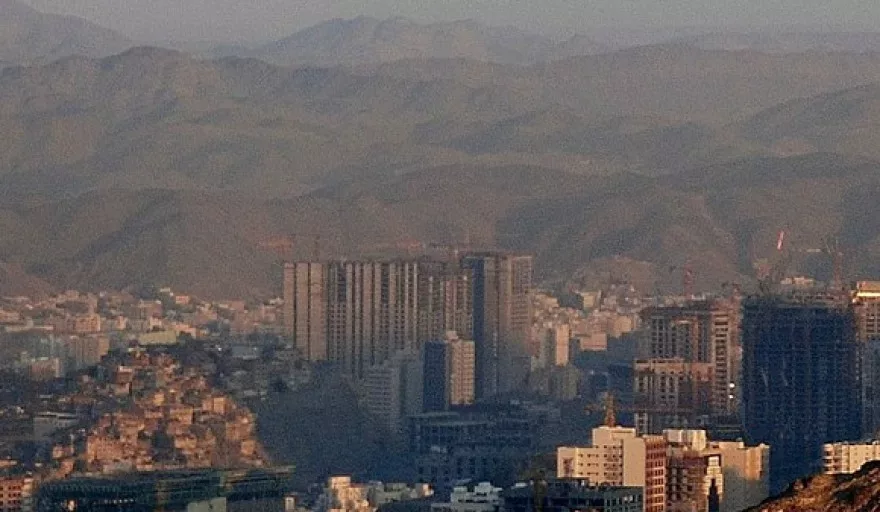Simon Penny, His Majesty’s Trade Commissioner for the Middle East, Afghanistan and Pakistan at the Department for International Trade, talks to us about growing export opportunities in Saudi Arabia.
One of my priorities in my role as HM Trade Commissioner is to ensure that British businesses know about the opportunities that exist in the sectors and geographies across my region, and how the Department for International Trade (DIT) can help businesses succeed overseas.
Saudi Arabia has been mentioned more frequently in the past weeks and months, which is not surprising, as it has been a big year for bilateral relations between the Kingdoms.
Just over a year ago, His Royal Highness Mohammad bin Salman bin Abdulaziz bin Saud was appointed Crown Prince of Saudi Arabia. Billed as a reformer, he has been quick to make his mark on his home country and around the world. In November last year, Prime Minister Theresa May visited Saudi Arabia, and the courtesy was returned with a visit by the Crown Prince to the UK in March.
What I want to highlight is how Saudi Arabia’s Vision 2030 – and the resulting closer ties between our two countries – presents a unique opportunity for UK businesses, underpinned by government support in the form of the newly launched Export Strategy, through DIT International Trade Advisers and through UK Export Finance.
Vision 2030
Vision 2030 – the Saudi programme of economic reform and modernisation – aims to diversify the economy away from a reliance on oil, while delivering greater inclusivity for Saudi citizens.
To achieve this, the Crown Prince has committed to a significant programme of economic diversification which will grow the domestic economy, and which provides opportunity for UK business. This includes a greater role for the private sector, changes to business licensing and regulation, and, on 1 January the introduction of 5 percent VAT.
The opportunity
As Saudi Arabia continues on this path of economic diversification, there are great opportunities for UK businesses to export our world-leading experience and expertise. You will find great interest in UK expertise, products and services, many of whom are already well-established in the Kingdom. The government of the UK and the Kingdom of Saudi Arabia have agreed a landmark ambition of £65 billion of mutual trade and investment over the next decade.
Often quoted are headline trade opportunities in healthcare, education, retail, energy and construction. Businesses in those sectors would do well to carefully appraise the opportunities in Saudi Arabia.
Entertainment, tourism and hospitality are sectors of significant growth. This is a new opportunity which I know the UK can excel in. From cinemas to luxury resorts, the appetite in these sectors will only increase. And it’s an opportunity that’s far from exclusive to larger businesses.
Take Trent Furniture, a small business with its base in Leicester, in the Midlands. Simply by maintaining an online showroom, accessible to customers across the world, the company was able to expand its exporting portfolio to Saudi Arabia very soon after the announcement of the trading ambition by the two governments in March.
Before agreeing to the request from Siddique Al Imtiyaz to furnish its 200-person restaurant in Saudi Arabia, Trent Furniture approached DIT to secure the support of a local, Midlands-based International Trade Adviser.
These advisers, located on the ground across the UK, and all with previous business experience setting up and managing exports, are an invaluable and underutilised resource for any business considering starting or growing their exporting capability.
Exporting to any country can pose questions, from navigating cultural issues and building business relationships, to ensuring legal compliance and securing trade finance. International Trade Advisers can give practical advice to navigate these issues.
In this case, DIT assisted Trent Furniture with a certificate of conformity, a legal requirement for goods shipped into Saudi Arabia. They also supported in developing the client relationship, particularly around standards of invoicing.
British businesses can rely on support from DIT teams based in their local region, but they should know that our UK-based teams receive expert guidance from DIT colleagues based overseas at British Embassies and High Commissions all over the world. My team in Saudi Arabia have offices in the country’s three main commercial cities: Riyadh, Jeddah and Al Khobar, and stand ready to help.
If a small furniture supplier in the Midlands can export to Saudi Arabia, what’s stopping you from doing the same?



















